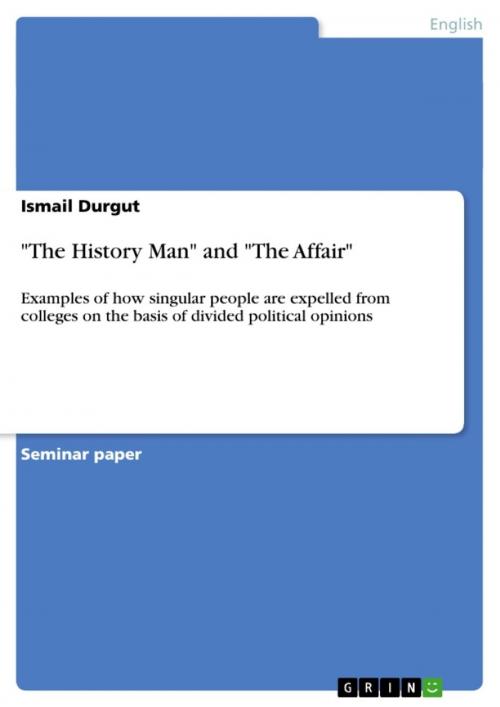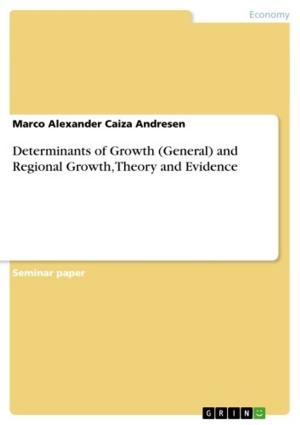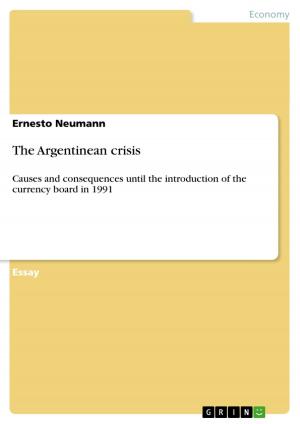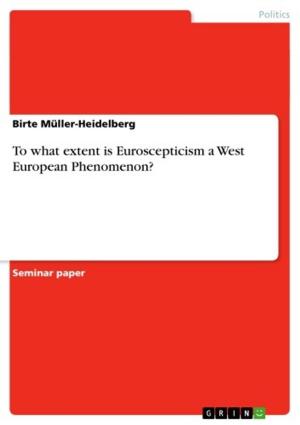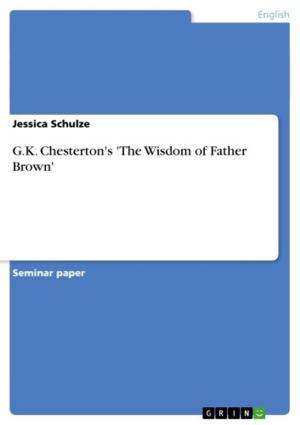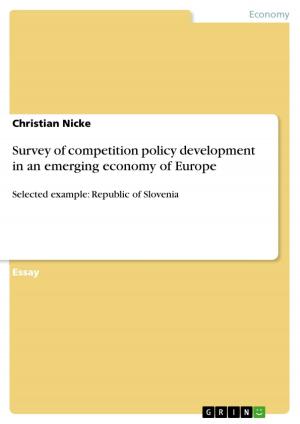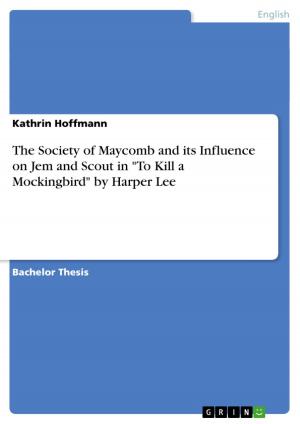'The History Man' and 'The Affair'
Examples of how singular people are expelled from colleges on the basis of divided political opinions
Fiction & Literature, Literary Theory & Criticism, British| Author: | Ismail Durgut | ISBN: | 9783638055154 |
| Publisher: | GRIN Publishing | Publication: | May 29, 2008 |
| Imprint: | GRIN Publishing | Language: | English |
| Author: | Ismail Durgut |
| ISBN: | 9783638055154 |
| Publisher: | GRIN Publishing |
| Publication: | May 29, 2008 |
| Imprint: | GRIN Publishing |
| Language: | English |
Seminar paper from the year 2007 in the subject English Language and Literature Studies - Literature, grade: 2,3, University of Duisburg-Essen, 13 entries in the bibliography, language: English, abstract: This paper deals with the dismissal of a college-member in C.P. Snow's The Affair and the desertion of a college-student in M. Bradbury's The History Man, and with the reasons which led the characters that are involved to that decisions. What makes these two events so interesting that they become the topic of a term paper? What functions do they fulfill in these two university novels? Are there any similarities and/or differences between the colleges, the staff or the two cases? Which conclusions could be drawn? These kinds of scandals illustrated are triggering off whole strings of events in communities of colleges. They are indicators of political participation as well as the reason for a division or separation of the members of a college. Are the political participations of the victims the main reason for their dismissal or desertion, as it seems at first sight, or rather a superficial reason, more than that, the camouflage for personal ambitions of some characters in the two university novels discussed in this paper? Both narrators, Lewis Eliot and Howard Kirk, present their colleges as societies in society, almost hermetically sealed. Many authors, e.g. C.P. Snow, use the term microcosm for this phenomenon, that means, while the college gives outstanding people the impression of being a comprehensive and cohesive system, seen from the inside it shows a variety of social structures and interrelations. It does not only split into institutional coexistence of departments and courses, even in between these unities there are differences like social background and social status, ethnic-religious affiliation, age and gender. As we will see these characteristic features lead to a formation of a social hierarchy and sometimes even to the discrimination or exclusion of the bearer. In this connection college presents itself as a faithful reflection of the English society. Within the faculty, there is a distinct gradation, too, expressing itself in the rate of title and the authority connected with it. This feature triggers off a competition, even a rivalry within the faculty for benefits and power. College is, like the state it belongs to, '[a] world of professional success, power, ambition, influence among men'. -As The History Man shows us, not only among men. But the ways of life in colleges are not identical.
Seminar paper from the year 2007 in the subject English Language and Literature Studies - Literature, grade: 2,3, University of Duisburg-Essen, 13 entries in the bibliography, language: English, abstract: This paper deals with the dismissal of a college-member in C.P. Snow's The Affair and the desertion of a college-student in M. Bradbury's The History Man, and with the reasons which led the characters that are involved to that decisions. What makes these two events so interesting that they become the topic of a term paper? What functions do they fulfill in these two university novels? Are there any similarities and/or differences between the colleges, the staff or the two cases? Which conclusions could be drawn? These kinds of scandals illustrated are triggering off whole strings of events in communities of colleges. They are indicators of political participation as well as the reason for a division or separation of the members of a college. Are the political participations of the victims the main reason for their dismissal or desertion, as it seems at first sight, or rather a superficial reason, more than that, the camouflage for personal ambitions of some characters in the two university novels discussed in this paper? Both narrators, Lewis Eliot and Howard Kirk, present their colleges as societies in society, almost hermetically sealed. Many authors, e.g. C.P. Snow, use the term microcosm for this phenomenon, that means, while the college gives outstanding people the impression of being a comprehensive and cohesive system, seen from the inside it shows a variety of social structures and interrelations. It does not only split into institutional coexistence of departments and courses, even in between these unities there are differences like social background and social status, ethnic-religious affiliation, age and gender. As we will see these characteristic features lead to a formation of a social hierarchy and sometimes even to the discrimination or exclusion of the bearer. In this connection college presents itself as a faithful reflection of the English society. Within the faculty, there is a distinct gradation, too, expressing itself in the rate of title and the authority connected with it. This feature triggers off a competition, even a rivalry within the faculty for benefits and power. College is, like the state it belongs to, '[a] world of professional success, power, ambition, influence among men'. -As The History Man shows us, not only among men. But the ways of life in colleges are not identical.
